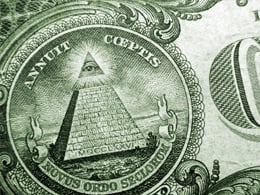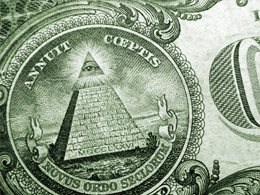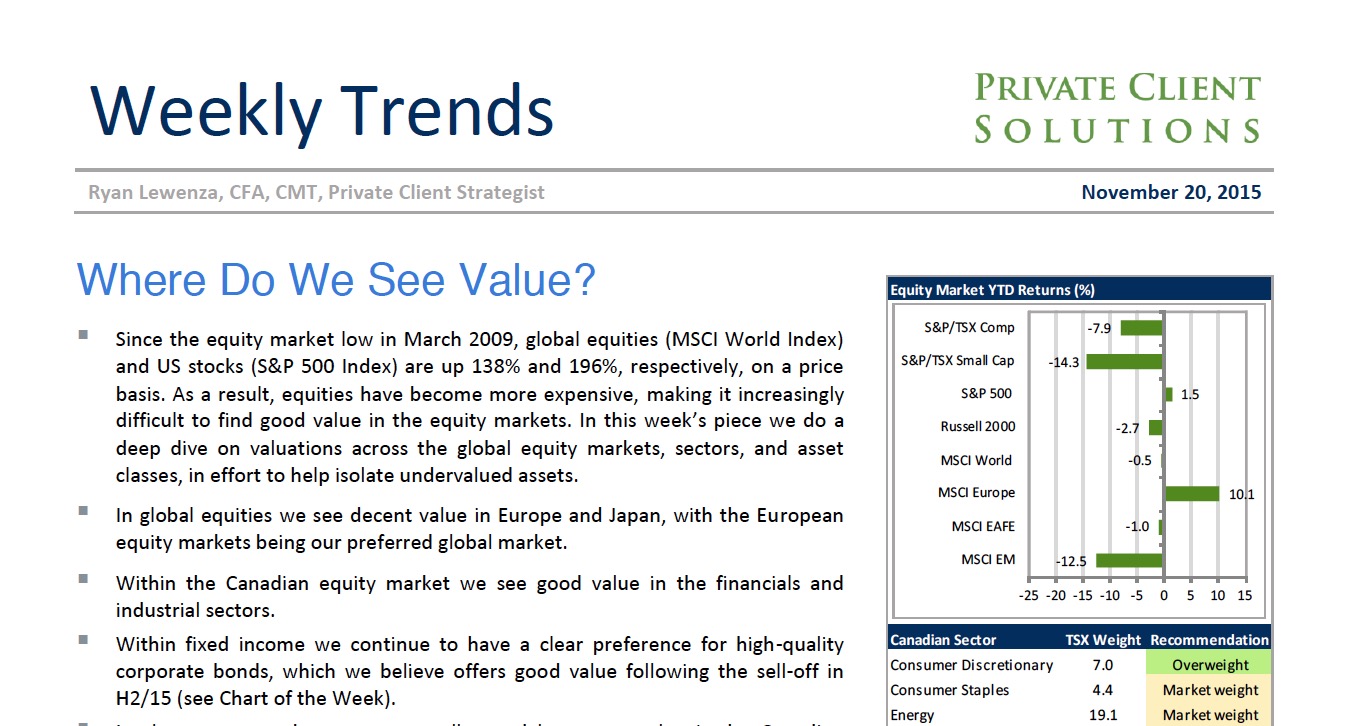U.S. Dollar Still Failing to Collapse
by Brad McMillan, CIO, Commonwealth Financial Network
 As we approach normal in the U.S. economy, I thought it would be worth taking a look back at the very real risks we have skirted over the past several years. One of the major drivers in the “disaster chic” commentary cycle, which I have written about many times, is to take a real risk and extrapolate current trends into disaster. This plays into a very human tendency to do just that, as well as a pessimism born of recent experiences during the crisis.
As we approach normal in the U.S. economy, I thought it would be worth taking a look back at the very real risks we have skirted over the past several years. One of the major drivers in the “disaster chic” commentary cycle, which I have written about many times, is to take a real risk and extrapolate current trends into disaster. This plays into a very human tendency to do just that, as well as a pessimism born of recent experiences during the crisis.
The collapse narrative
One of the most popular disaster memes was the collapse of the U.S. dollar. Never mind that you can’t replace something with nothing. The narrative was that the dollar would lose all of its value, and something—the euro, the yuan, the yen (okay, not the yen)—would take its place. The apex of this was the pending decision by the IMF to put the yuan in its currency basket. I got many calls and e-mails on this.
Rise of the yuan?
Guess what? It looks likely that this will happen shortly. The IMF will recognize the yuan as a major world currency and include it in its calculations—exactly as predicted by the doomsayers. Unfortunately, for them not us, the effect will be exactly zero.
In fact, if you look at the trend of the dollar’s value, it continues to rise. Traders, both financial and real goods, continue to price goods in dollars. Investors continue to want dollar assets. The U.S. is still considered the global safe haven. None of that has changed.
The icing on the cake
With the U.S. economy continuing to recover, and even normalize, that trend will only strengthen. With the Fed looking to raise rates at the same time as the European, Chinese, and Japanese central banks all continue to ease policy, investors can get more return, for less risk, in U.S. assets. Who wouldn’t want to own dollars under those circumstances? The fact that the dollar continues to appreciate against most other currencies is the icing on the cake. Expect these trends to continue. The U.S. dollar will continue to be the default and dominant global currency, including for reserve purposes.
Effects of a strong dollar
Nothing, however, is free, which brings us to the political reasons the dollar’s preeminence is unlikely to fade anytime soon. A strong dollar can damage a country’s economy. For example, you can see:
- U.S. corporate earnings dropping as the dollar strengthens
- The U.S. manufacturing sector struggling to compete in global markets as the dollar strengthens
- The Fed struggling with how to manage interest rates in the face of global capital inflows
The U.S., as a relatively self-contained economy, can withstand this kind of export and profit pressure. As the largest capital market on the planet, we can manage the inflows. As an integrated, politically mature, and stable polity (despite the current campaigns), we remain the safe option.
The dominant currency role
My past discussion of the dollar’s role has focused on network effects, the economic and political strength of the U.S., and the absence of a convincing other option. As economies elsewhere start to slow, though, I can see that I have missed perhaps the most convincing argument of all: Other countries simply will not want the dominant currency role. China, in particular, would have to sacrifice much of its current economic toolbox to take that role, a sacrifice that I would be unwilling to make, if it were up to me.
Something that is becoming clearer to me is that as the cycle turns, we need to reconsider conclusions that seemed quite solid in the past. China has made great efforts to achieve reserve currency status—something it may come to regret. Immigration, long seen as a problem, may end up undergoing the same shift, something I will write about more in the next couple of weeks.
The secret to success
As always, per Mark Twain, it isn’t the things we don’t know that kill us; it’s the things we know for sure that just aren’t so. One of the secrets of investment success over the next several years is likely to be figuring out just what those are.
Commonwealth Financial Network is the nation’s largest privately held independent broker/dealer-RIA. This post originally appeared on Commonwealth Independent Advisor, the firm’s corporate blog.
Copyright © Commonwealth Financial Network













